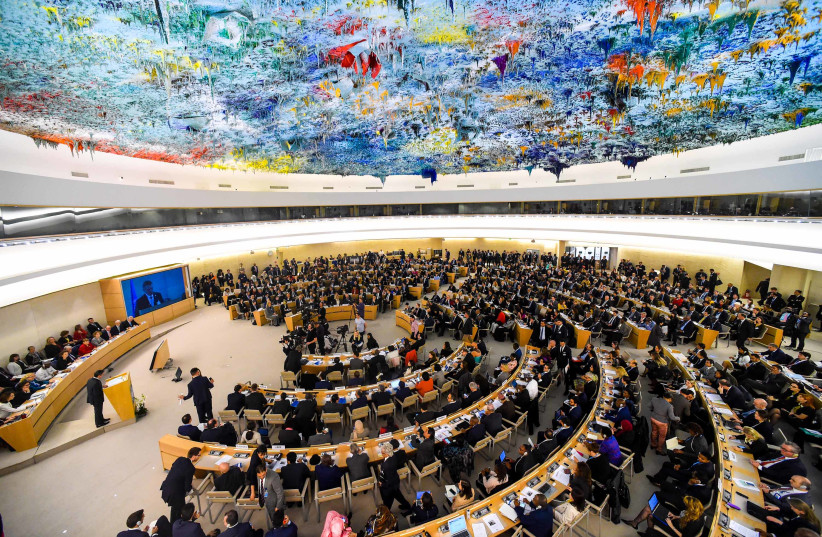The United Nations Human Rights Council plans to debate this Thursday the creation of a year-long commission of inquiry into Russia’s invasion of Ukraine.
The three-member panel would “investigate all alleged violations and abuses of human rights and violations of international humanitarian law in Crimea and certain areas of Donetsk and Luhansk regions since 2014 and in other areas of Ukraine since February 22, 2022.”
Ukraine submitted a resolution to authorize the probe on Monday after it secured support in a 29-5 vote for the UNHRC to hold Thursday’s debate. The United States, which this year resumed its role as a voting member of the 47-member body, cast its first vote at the UNHRC in support of this text.
After Monday’s vote the US tweeted, “The United States strongly supports today’s Human Rights Council decision to hold an urgent debate on the devastating human rights consequences of Russia’s premeditated, unprovoked, and unwarranted aggression against the people of Ukraine. #StandWithUkraine.”
The five countries that opposed holding the debate were Cuba, Eritrea, Venezuela, Russia and China. It was a shift from its stance at the UN Security Council, where it had abstained on resolutions regarding Russia.

An additional 13 countries abstained from the resolution to hold the debate. Another vote will be taken after the debate, to affirm the creation of the probe.
The text of the Ukrainian resolution “condemns in the strongest possible terms the human rights violations and abuses resulting from the Russian Federation’s continuing military invasion of Ukraine and reaffirms its strong commitment to the sovereignty, political independence, unity and territorial integrity of Ukraine within its internationally recognized borders, including its territorial waters.”
The resolution also called for a “swift and verifiable withdrawal of Russian Federation troops and armed groups from the entire internationally recognized territory of Ukraine including its territorial waters... and stresses the urgent need for the immediate cessation of military hostilities against Ukraine.”
The UNHRC opened its scheduled 49th session on Monday with a series of high-level speeches by representatives of the 193 UN member states. It took place under the shadow of Russia’s military action and is set to last until April 1.
Iceland’s Foreign Minister Þórdís Kolbrún Reykfjörð Gylfadóttir said that Russia’s invasion was a war “against democracy.” This military action, she said, was waged to “turn back the clock, to take back the liberties and rights the world has adopted.” She took particular issue with Russia’s “xenophobic rhetoric.”
Moldova’s State Secretary Veaceslav Dobîndă said the UNHRC was “profoundly marked by the unprecedented events happening in and around Ukraine” and that his country strongly condemned that action.
“This act represents not only an attack against Ukraine. It constitutes a breach of international law and a serious violation of fundamental documents and principles on which this organization and international order is based,” Dobîndă said.
“We reiterate our call on the Russian Federation to immediately stop the use of military force and to return to the path of diplomacy, dialogue and cooperation.”
